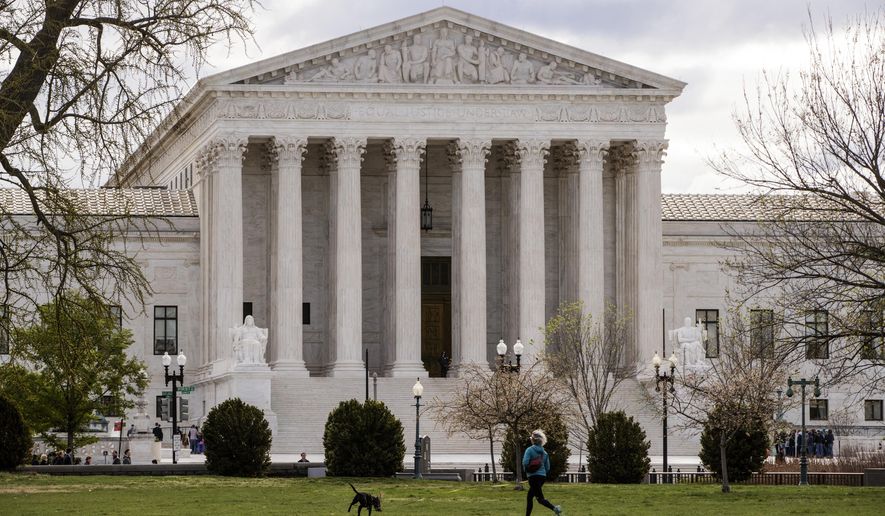The Supreme Court said Monday it will take up a case that tests the bounds of federal investigators’ ability to pry loose information American companies store on foreign computer servers.
It’s the latest test for the justices as they grapple with 20th Century laws governing the modern-day Internet economy.
The new dispute arose after the government served a warrant on Microsoft trying to get emails in connection with a 2013 drug trafficking investigation.
The Washington state-based company handed over information it had that was stored on servers in the U.S. but refused to turn over emails kept on servers at Microsoft’s datacenter in Dublin, Ireland, saying it didn’t want to risk running afoul of other countries’ privacy laws.
A federal trial court ruled for the government but the 2nd U.S. Circuit Court of Appeals ruled for Microsoft, saying the Stored Communications Act was designed to protect the privacy interests of users.
The government says Microsoft could have accessed its overseas servers from within the U.S. to obtain the emails. In its brief urging the Supreme Court to take the case, the Justice Department said the appeals court’s ruling puts law enforcement at a disadvantage.
“Under this opinion, hundreds if not thousands of investigations of crimes—ranging from terrorism to child pornography, to fraud—are being or will be hampered by the government’s inability to obtain electronic evidence,” government lawyers argued.
Microsoft has servers in 40 countries and when users open email accounts, they disclose to Microsoft where they live, so their information can be housed in a server near their residence.
The company says that if the government wants to make sure its warrants can reach information stored overseas, Congress needs to act.
“This Court should not short-circuit the legislative process, which is functioning as it should—as both Republican and Democratic Members of Congress agree,” Microsoft said in its legal brief.
Rep. Doug Collins, Georgia Republican, introduced the International Communications Privacy Act in the House last month to provide a framework for law enforcement to follow when obtaining electronic data abroad.
“Thirty years have passed since the Electronic Communications Privacy Act became law, and what began as a pro-privacy statute has become an outdated burden in our increasingly digital and global age,” said Mr. Collins. “The Supreme Court’s decision to hear this case does not nullify Congress’s responsibility to modernize and clarify the law.”
Lee Tien, an attorney for the Electronic Frontier Foundation which supported Microsoft’s position in the lower courts, said he is unsure how the court would come down on this case. But he noted the court under Chief Justice John G. Roberts, Jr. has supported privacy concerns in recent rulings.
Robert Cattanach, an attorney with Dorsey & Whitney, said the case will have a global impact because other countries will likely update their policies based on how the court rules.
“All of this is being played out as the European Union continues its review of the Privacy Shield measure that allows the transfer of personal data of EU residents to the U.S. under the presumption that it can be adequately protected,” said Mr. Cattanach.
• Alex Swoyer can be reached at aswoyer@washingtontimes.com.




Please read our comment policy before commenting.